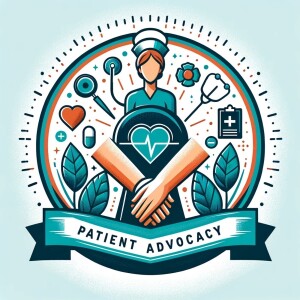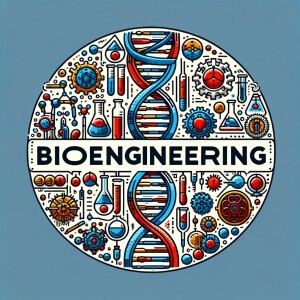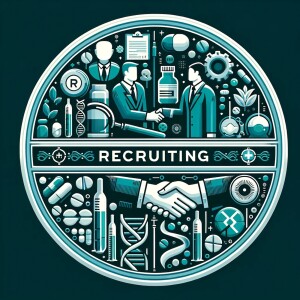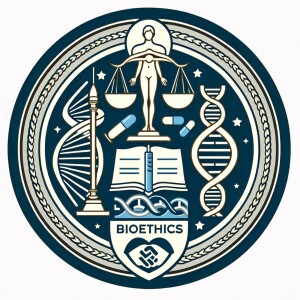RealPharma: Conversations with Pharma Pathfinders
For biopharma pros seeking insightful discussions and a deeper understanding of the pharma world, join Dr. Na-Ri Oh and Ian Wendt as they talk with industry leaders and luminaries to delve into biotechnology, pharmaceuticals, and healthcare. RealPharma podcast aims to challenge your viewpoints, deepen your understanding of the pharma world beyond the headlines, and explore emerging trends in medical innovation.
Episodes

Sunday Mar 10, 2024
Redefining Fertility Care: Shelley Bailey’s Journey with Famlee
Sunday Mar 10, 2024
Sunday Mar 10, 2024
Dive into the world of fertility with Shelley Bailey, the visionary founder and CEO of Famlee Fertility, on our latest episode. Discover Shelley's personal journey that led to the creation of Famlee, a company revolutionizing the fertility landscape with its home-based testing and clinical treatments aimed at empowering women to understand and enhance their fertility.In this enlightening conversation, Shelley unravels the role of Famlee in supporting women through their fertility treatment journey, debunking common myths and misconceptions that surround fertility. Learn about the holistic approach and tailored treatment plans Famlee offers, designed to balance hormones and improve fertility from the comfort of home.Tune in to gain valuable insights into overcoming fertility challenges, the importance of personalized care, and the future of fertility treatments. Whether you're navigating your own fertility journey or simply interested in the innovations transforming women's health, this episode promises to enlighten, inspire, and empower.Chapters:00:00 Introduction to Shelley Bailey and Famlee Fertility04:02 Shelley's Personal Journey and Inspiration for Starting Famlee09:47 The Role of Famlee in the Fertility Treatment Journey14:38 Positioning Famlee in the Healthcare Landscape17:10 Common Myths and Misconceptions about Female and Male Fertility23:39 The Journey with Famlee: Holistic Approach and Treatment Plan32:47 Challenges Faced as a Founder in the Fertility Sector42:15 Future Plans and Expansion for Famlee43:49 Mentors and Inspiration in Shelley's Entrepreneurial JourneyResources:Famlee FertilityShelley Bailey, CEO and Founder of Famlee**Understanding Fertility: The Basics** - HHS Office of Population Affairs: Explore fundamental aspects of fertility, including menstrual cycle and fertility awareness.https://opa.hhs.gov/adolescent-health/reproductive-health/understanding-fertility-basics**RESOLVE: The National Infertility Association**: Offers detailed information on the female reproductive system and resources for managing infertility stress and relationships. Support groups and professional help are also available.https://resolve.org/what-are-my-options/understanding-infertility/**Female Fertility: Why Lifestyle Choices Count - Mayo Clinic**: Provides insights into how lifestyle choices impact fertility and offers practical tips for maintaining a healthy lifestyle to improve fertility.https://www.mayoclinic.org/healthy-lifestyle/getting-pregnant/in-depth/fertility/art-20047584**Fertility.com**: Contains comprehensive information about female fertility facts, age, and the reproductive system, including the menstrual cycle and the male’s role in conception.https://us.fertility.com/female-fertility**Your Fertility**: Offers a range of fact sheets on topics like the effects of caffeine, alcohol, and smoking on reproductive outcomes, understanding ovulation, and the role of exercise in improving fertility.https://www.yourfertility.org.au**Infertility 101 from RESOLVE**: Provides an overview of infertility basics, along with support options, including online communities and advocacy information.https://resolve.org/what-are-my-options/infertility-101/

Monday Feb 26, 2024
Monday Feb 26, 2024
Dr. Jerome Adams, the 20th US Surgeon General, discusses various topics related to public health, including Operation Warp Speed, diversity in clinical trials, improving healthcare access and outcomes, addressing health inequities, collaborative approaches in healthcare, challenges with pricing models, the importance of prevention and health literacy, and lessons learned from COVID-19.In this conversation, Dr. Jerome Adams discusses the impact of political pandering on public health messaging and the erosion of trust in the CDC. He emphasizes the need for proper funding and communication in the CDC to effectively respond to public health crises. Dr. Adams also highlights the importance of practical information and listening to the public, as well as supporting public health workers. He suggests protecting the independence of CDC directors and Surgeon Generals to instill trust in the organization.The conversation also touches on the reputation of the pharma industry and the paradox of trust and distrust in public health organizations. Dr. Adams concludes by sharing his guiding principles of caring and finding common ground.TakeawaysOperation Warp Speed was a significant achievement in public health, demonstrating the collaboration between the public and private sectors to develop and distribute COVID-19 vaccines.Diversity in clinical trials is crucial to ensure that medications and treatments are effective for all populations.Improving healthcare access and outcomes requires a holistic approach that addresses social determinants of health and promotes health equity.Collaboration between different stakeholders, including the government, private industry, and the community, is essential to drive positive change in healthcare.Pricing models in the pharmaceutical industry need to be reevaluated to ensure the affordability and accessibility of medications for all individuals. Political pandering can have a detrimental impact on public health messaging and erode trust in public health organizations.Proper funding and communication are essential for the CDC to respond to public health crises effectively.Practical information and listening to the public are crucial in public health communication.Supporting and retaining public health workers is vital for a strong public health infrastructure.Protecting the independence of CDC directors and Surgeon Generals can help build trust in the organization.The pharma industry needs to address issues of inequity and community engagement to improve public perception.There is a paradox of trust and distrust in public health organizations, which requires addressing underlying issues.Caring and finding common ground are important guiding principles in public health work.Chapters00:00 Introduction to Dr. Jerome Adams02:18 Discussion on Operation Warp Speed05:34 Importance of Diversity in Clinical Trials09:52 Improving Healthcare Access and Outcomes18:03 Addressing Health Inequities23:35 Collaborative Approach in Healthcare25:30 Challenges with Pricing Models30:21 Importance of Prevention and Health Literacy35:06 Lessons Learned from COVID-1945:57 The Impact of Political Pandering46:53 The Perception of Political Leanings47:40 The Erosion of Trust in the CDC49:27 The Need for Proper Funding and Communication in the CDC51:51 The Importance of Practical Information and Listening to the Public53:25 The Importance of Supporting Public Health Workers54:16 Protecting the Independence of CDC Directors and Surgeon Generals55:47 The Reputation of the Pharma Industry58:12 The Paradox of Trust and Distrust in Public Health Organizations01:04:07 Guiding Principles: Caring and Finding Common GroundResources:Dr. Jerome Adams (LinkedIn)Dr. Jerome Adams (Twitter/X)Dr. Jerome Adams (Purdue University)Crisis and Chaos: Lessons from the Front Lines of the War Against Covid-19Operation Warp Speed Resources:GAO ReportGAO Congressional ReportOWS Distribution Strategy

Thursday Feb 15, 2024
Advocacy in Action: Coy Stout’s Vision for Empowered Healthcare
Thursday Feb 15, 2024
Thursday Feb 15, 2024
Trying to understand how pharma can effectively partner with patient advocates to support better patient outcomes? In this episode, Coy Stout discusses his journey in patient advocacy and the intersection of patient advocacy, policy, and social work in the pharma industry. He shares personal stories that motivated him to get involved in the field and highlights the importance of patient-centricity in biotech companies.Coy also discusses the role of technology in patient advocacy and the challenges and controversies surrounding patient advocacy in diseases like ALS and Alzheimer's. He emphasizes the need for transparency, collaboration, and patient input in decision-making processes, especially when it comes to drug pricing and access. In this episode, Coy Stout shares his insights on patient advocacy and the importance of patient-centered care. He discusses the challenges faced by patients and the need for more diverse representation in healthcare and pharma. Coy also highlights the transformative medicine happening now and the opportunity to bring real-world expertise into the industry. He envisions a future where patients and their caregivers are actively involved in guiding research and commercialization efforts.Overall, Coy emphasizes the importance of creating space for patients and their communities to contribute to innovation in healthcare.Chapters:00:00 Introduction01:32 Motivation for Patient Advocacy04:38 Early Relationships Between Advocacy Groups and Pharma07:08 Patient-Centricity in Biotech Companies09:42 Gold Standard of Patient Advocacy10:51 Intersection of Patient Advocacy and DEI Initiatives12:45 Engaging Employees in Advocacy17:34 Role of Technology in Patient Advocacy20:50 Controversies and Challenges in Patient Advocacy31:07 Patient Advocacy in ALS and Alzheimer's Disease38:00 Balancing Patient Advocacy and Drug Pricing54:53 Closing RemarksLinks:Patient Advocate Foundation (PAF) offers various patient-friendly resources to empower individuals in leading their healthcare journey. These resources include publications, tip sheets, webinars, and interactive materials2.The American Medical Association (AMA) is dedicated to advocating for patients’ access to quality healthcare. Physicians actively work to address health disparities and fight for patients’ rights through legislative efforts and legal support.National Patient Advocate Foundation (NPAF):The NPAF provides additional resources to support patients in their healthcare experiences.

Thursday Jan 25, 2024
Engineering Health: Dr. Khalil Ramadi’s Vision of Bioengineering and Neuromodulation
Thursday Jan 25, 2024
Thursday Jan 25, 2024
Dr. Khalil Ramadi, an assistant professor at New York University Abu Dhabi, discusses the field of bioengineering and his work in neuromodulation and ingestible electronics. He explains that bioengineering encompasses tinkering with biology and physiology, and its focus has shifted from building hardware tools for the clinic to devices that can be implanted in the body.Dr. Ramadi's interest in neuromodulation stems from the need to improve brain technologies and find non-invasive ways to target specific areas of the body. He also explores the potential applications of neuromodulation in areas such as obesity, eating disorders, and diabetes. The challenges in bioengineering include regulatory issues, access to innovations, and the scalability of devices. In this conversation, Khalil Ramadi discusses the field of bioengineering and its potential impact on healthcare. He shares insights on the future of bioengineering education, emphasizing the need for innovation and commercialization.Khalil also predicts advancements in personalized care and the potential for new technologies to diagnose and treat diseases. He highlights the importance of finding inspiration and overcoming challenges in the field. Lastly, he introduces Project Prana Foundation, a nonprofit organization focused on developing technologies for decentralized care.Chapters00:00 Introduction to Dr. Khalil Ramadi03:47 Defining Bioengineering06:33 Dr. Ramadi's Journey into Bioengineering10:30 The Role of a Bioengineer11:56 Focus on Neuromodulation and Ingestible Electronics16:41 The Gut-Brain Connection17:26 Applications of Neuromodulation20:38 Neuralink and the Future of Bioengineering25:05 Neuromodulation and GLP-1 Agonists29:27 Challenges in Bioengineering33:33 The Future of Pharma and Bioengineering36:18 Ensuring Access to Bioengineering Innovations40:20 The FLASH Pill and Appetite Stimulation47:02 The Future of Bioengineering Education51:10 Predictions for the Next 10 Years55:00 Finding Inspiration and Overcoming Challenges58:31 Project Prana FoundationResourcesDr. Khalil Ramadi:https://www.linkedin.com/in/khalil-ramadi/Ramadi Lab:RamadiLab.comIngestible electronics: Science Robotics paper for gastric stimulation: https://www.science.org/doi/10.1126/scirobotics.ade9676Project Prana: https://www.projectprana.org/isaveNano Robots Shrink Bladder Cancer:https://www.irbbarcelona.org/en/news/scientific/nanorobots-shrink-bladder-tumours-90Light Powered Yeast:https://www.science.org/content/article/scientists-engineer-first-light-powered-yeastDNA Detection Advances:https://scitechdaily.com/rapid-disease-diagnosis-bioengineering-breakthrough-boosts-dna-detection-sensitivity-by-100x/

Thursday Jan 25, 2024
Beyond the Job Title: Mastering the Pharma Job Market with Kristiaan Rawlings
Thursday Jan 25, 2024
Thursday Jan 25, 2024
This episode discusses the biopharmaceutical job market and the impact of the COVID-19 pandemic. It explores the state of the job market, including layoffs and hiring trends in the industry. The conversation also delves into the role of recruiters in the life sciences industry and provides insights into their day-to-day activities.Additionally, it offers advice for candidates on how to approach working with recruiters and highlights the importance of building long-term relationships. The episode concludes with a discussion on the impact of technology on job applications. In this conversation, Kristiaan discusses the current hot areas in the industry, including GLP-1s, dermatology, neurology, ophthalmology, and respiratory. He also talks about the trend of title deflation and how candidates should focus on the responsibilities and long-term opportunities rather than just the title. Kristiaan provides insights into compensation trends, including base salaries, bonuses, and long-term incentives.He also addresses the topic of work onsite vs. remote and how companies are expecting employees to be onsite two to three times a week. Finally, he shares advice on charting your path and being willing to do what others won't to achieve your goals.Chapters00:00 - Introduction to the Biopharmaceutical Job Market02:05 - State of the Job Market and Layoffs in the Biopharmaceutical Industry03:31 - The Impact of the Great Resignation on the Pharmaceutical Industry06:07 - The Influence of Disease Areas on Hiring Trends08:30 - The Commercial Space in the Biopharmaceutical Industry12:55 - A Day in the Life of a Life Sciences Recruiter19:33 - Different Approaches and Business Models of Recruiters24:51 - How Candidates Should Approach Working with Recruiters27:49 - Building Long-Term Relationships with Recruiters32:00 - Success Stories of Candidates Who Overcame Challenges37:13 - The Impact of Technology on Job Applications43:48 - Hot Areas in the Industry48:23 - Title Deflation57:26 - Compensation Trends01:02:33 - Work Onsite vs. Remote01:09:01 - Charting Your PathResourcesKristiaan Rawlings LinkedInEPM ScientificBiopharma Layoff Tracker 2023BioSpace: How to Prepare for Your Biopharma Job Search

Thursday Jan 25, 2024
Navigating the Ethical Maze: Dr. Arthur Caplan on Bioethics in Modern Medicine
Thursday Jan 25, 2024
Thursday Jan 25, 2024
Dr. Arthur Caplan, a distinguished bioethicist, discusses various topics related to bioethics. He highlights the importance of bioethics in areas such as organ transplantation, genetic testing, artificial intelligence, and personalized medicine.Dr. Caplan emphasizes the need for informed consent in research ethics and the importance of providing research participants with the results of studies. He also addresses the ethical considerations in organ transplantation, including the allocation of scarce resources and the role of living donors. Additionally, he discusses the ethical implications of expensive treatments and the allocation of limited resources in healthcare. The conversation explores the disparity in healthcare attention given to rare diseases compared to chronic conditions. It highlights the need for organized advocacy and lobbying for conditions that lack representation.The discussion also delves into the balance between investing in genetic therapies for rare diseases and preventive measures for chronic conditions. The ethical considerations of gene editing using CRISPR technology are examined, including the need for monitoring and surveillance of adverse effects. The potential for societal inequalities in access to gene editing is discussed, raising concerns about eugenics and the widening gap between those who can afford the technology and those who cannot.Chapters00:00 Introduction to Dr. Arthur Caplan01:35 The Importance of Bioethics in Various Areas09:25 Informed Consent in Research Ethics17:29 Balancing Scientific Progress and Ethical Considerations in Human Subject Research33:41 Ethical Considerations in Organ Transplantation47:22 Healthcare Resource Utilization and Pricing48:25 Disparity in Healthcare Attention51:18 Balancing Rare Diseases and Chronic Conditions53:36 Genetics vs. Environmental Intervention58:26 CRISPR and Bioethical Concerns01:05:13 Societal Inequalities in Access to Gene Editing01:06:03 Inspiration from Ben FranklinResourcesDr. Arthur CaplanSuccumbing to AI with a whimper, not a bangWorking Group on Compassionate Use and Preapproval Access (CUPA)Vaccine Working Group on Ethics and PolicyWorking Group on Pediatric Gene Therapy & Medical EthicsTransplant Ethics and Policy If you donate DNA, what should scientists give in return? A ‘pathbreaking’ new modelTreating the dead; how far ought medicine go to obtain transplantable organs?Consideration and Disclosure of Group Risks in Genomics and Other Data-Centric Research: Does the Common Rule Need Revision?Research involving the recently deceased: ethics questions that must be answeredRegaining Trust in Public Health and Biomedical Science following Covid: The Role of ScientistsProtect newborn screening programsWhy the Gene Was (Mis)Placed at the Center of American Health Policy

Saturday Dec 09, 2023
Trailer
Saturday Dec 09, 2023
Saturday Dec 09, 2023
Coming January 2024! RealPharma Podcast is your gateway to the world of biopharmaceuticals and healthcare. Your hosts are two industry veterans who engage in in-depth conversations with pharma pathfinders/leaders who are shaping the future of medicine. Hear the stories behind the news that challenge traditional viewpoints and offer fresh perspectives that will make you rethink what you know about the healthcare industry.







